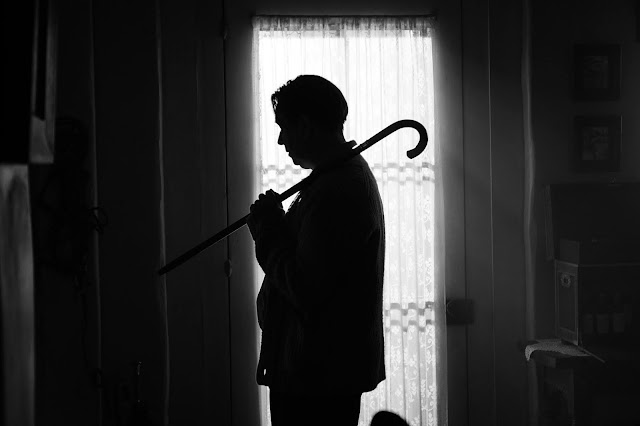Mank
The script is by Fincher's deceased father Jack, taking a bid from Pauline Kael's notorious (and discredited) article involving the true authorship of Orson Welles' classic CITIZEN KANE. Peter Bogdanovich and several others rebutted that Welles had in fact co-written the film with Herman J. Mankiewicz. MANK is all about the latter scribe (Gary Oldman), a brilliant but alcoholic mess of a man whose bluntness taxes the patience of Hollywood players such as MGM's Louis B. Mayer (Arliss Howard), producer/actor John Houseman (Sam Troughton), and of course Mr. Welles (Tom Burke), who orders the mostly bedridden writer to deliver inside of one month.
Yet, not among the annoyed is the very target of Mank's screenplay, newspaper publisher William Randolph Hearst (Charles Dance). Even when Herman spends what seems like hours insulting he and his mistress Marion Davies (Amanda Seyfried) during an intoxicated rant at a party at Hearst Castle. Hearst likes/tolerates the witty lush enough to merely politely escort him out. What more embarrassment was there to be suffered? To whom many in tinseltown called a "court jester."
And verbose is Fincher Sr.'s screenplay. One of several abortive attempts to emulate the films of the era, where actors actually sometimes delivered Pulitzer worthy dialogue. At times, it gets to be too much, too academic. Like a film scholar's badly-in-need-of-editing journal. And somehow this most interesting of filmic subjects is quite dull. Fincher Jr. really could not get a handle on this project. It fails as a valentine to Hollywood's Golden Age. The attempts to recreate the look of a 1930s film ain't going to work with digital cameras and filters that appear as if they were appropriated from social media. The overlay of celluloid scratches and cigarette burns (for reel changes) look amateurish. Erik Messerschmidt's cinematography does have its moments but none too many.
MANK fails as an actor's showcase, with apologies to Mr. Oldman who is good but chews the scenery one too many times. During the aforementioned party scene, several guests leave in embarrassment. I can imagine patrons in the movie theater doing the same by this point, if the confrontation with Mank and Welles (and some smashed bottles) didn't do it otherwise. Seyfried (and her beguiling eyes) acquits herself fairly well, but her character is underwritten. That accurately describes MANK , when it's not overwritten. Yet somehow it adds up to very little. David Fincher really needed to rework his father's words, and flesh out his characters. These are not complaints I usually aim toward a Fincher movie. While his resume is not 100% sterling (note ALIEN 3, THE GAME, and THE CURIOUS CASE OF BENJAMIN BUTTON), the films are always dramatically rich in narrative and characterization.
MANK, easily the worst in Fincher's filmography, feels like efforts of a grad student with access to iMovie. A real shame. If you want a look behind CITIZEN KANE that will spark even an iota of interest, watch RKO 281 instead.



Comments